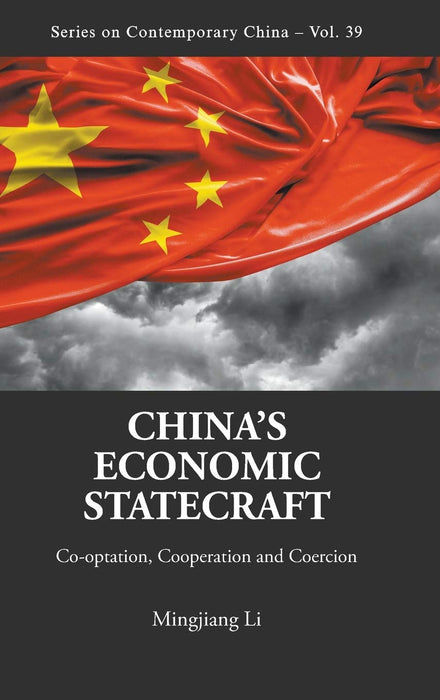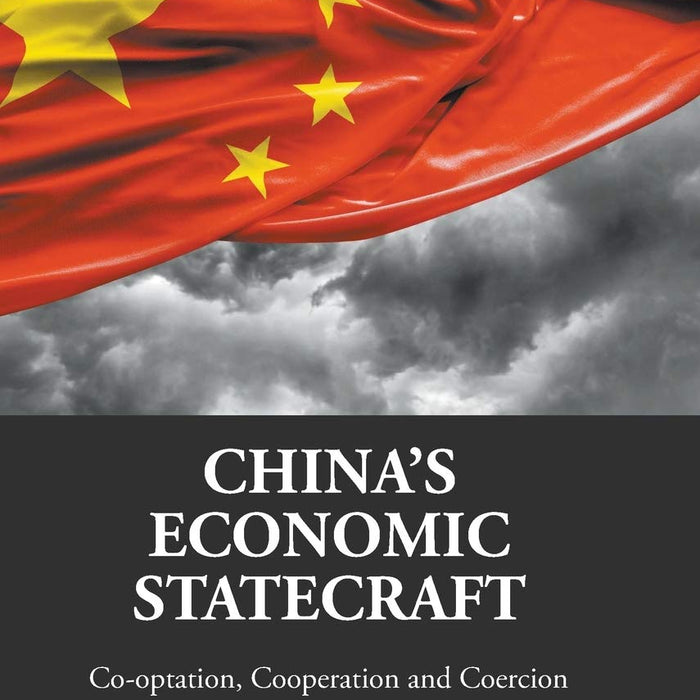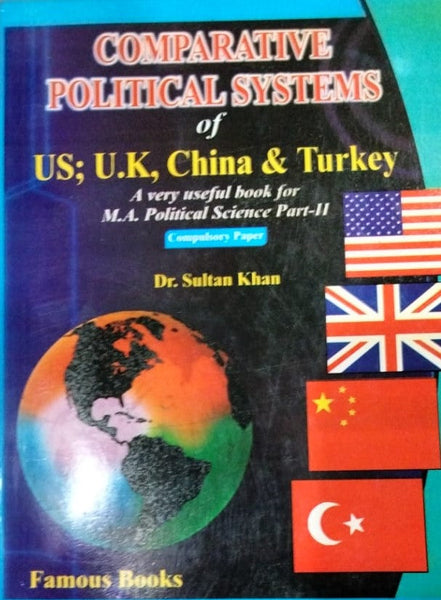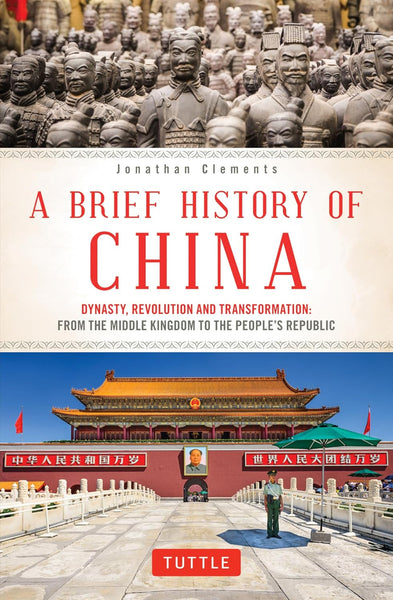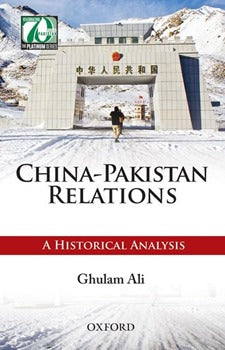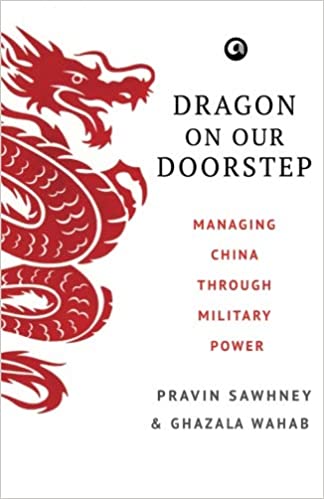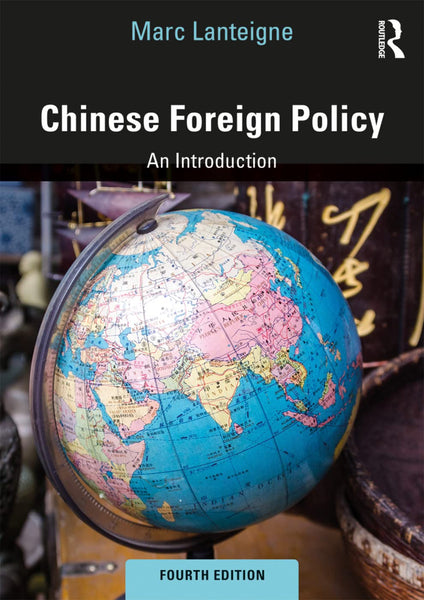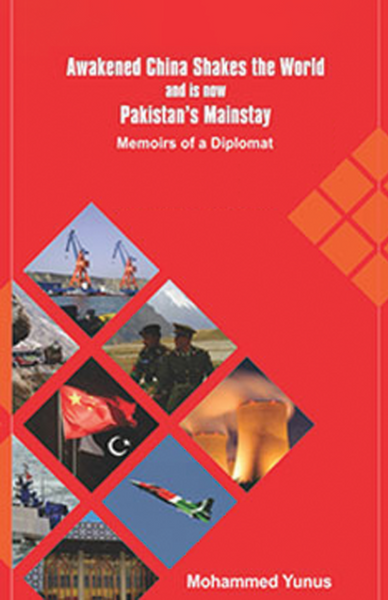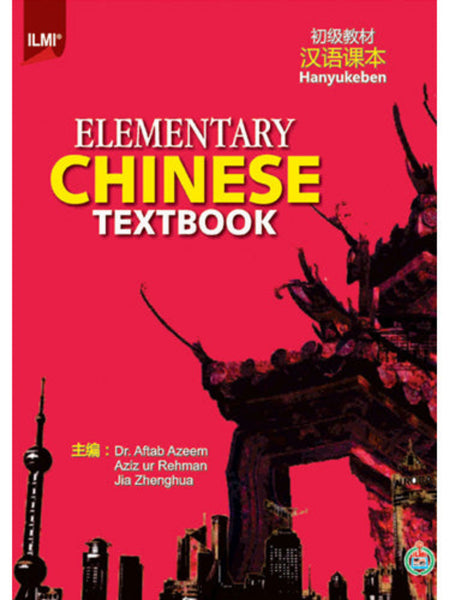China's Economic Statecraft: Co-Optation, Cooperation, and Coercion by Mingjiang Li (Author, Editor)
- Publisher: ECONOMICS
- Availability: In Stock
- SKU: 57191
- Number of Pages: 280
- Publication Date: 2017-05-11
Rs.670.00
Rs.995.00
Tags: affordable prices , best books , best books online , best online store , Best Price , best prices , Best Selling Books , best shop , Book shopping , bookshop , bookshop Multan , bookshop near me , bookshop online , bookshop online Multan , bookshopPakistan , buy online books , China's economic influence , China's economic policy framework , China's economic statecraft strategy , China's foreign policy , China's global economic role , China's grand strategy , China's international partnerships , China’s business environment , China’s business strategy , China’s commercial strategy , China’s economic control , China’s economic goals , China’s economic growth strategies , China’s economic impact , China’s economic leverage in global politics , China’s economic policy , China’s economic relations with the world , China’s economic rise , China’s foreign direct investment , China’s foreign economic policy , China’s geopolitical strategy , China’s global economic initiatives , China’s global strategy , China’s international economic negotiations , China’s international economic relations , China’s market influence , China’s role in global markets , China’s role in global trade , China’s state-owned enterprises , China’s strategic economic goals , Chinese commercial actors , Chinese commercial relations , Chinese companies’ influence , Chinese economic activities , Chinese economic decision-making , Chinese economic development , Chinese economic diplomacy , Chinese economic governance , Chinese economic institutions , Chinese economic institutions and control , Chinese economic integration , Chinese economic leverage in diplomacy , Chinese economic power , Chinese economic power dynamics , Chinese economic statecraft , Chinese economic strategy book , Chinese economy analysis , Chinese economy in the global context , Chinese foreign economic relations , Chinese foreign investments , Chinese foreign trade , Chinese foreign trade policy , Chinese global economic power , Chinese government policy , Chinese influence in global markets , Chinese market policies , Chinese political economy , Chinese political economy theory , Chinese state-owned enterprises in global economy , Chinese trade and economy , Chinese trade relations , commercial actors and Chinese statecraft , commercial actors in China , commercial diplomacy , digital shopping , economic influence in Asia , economic influence of China , economic leverage , economic policy in China , economic policy of Chinese government , economic statecraft , economic strategies of China , economic strategy by China , global economic strategy , global influence of China’s economy , good books , good books online , good booksonline , grand strategy in economics , international economic policy of China , Internet Shop , Largest Online Bookstore in Pakistan , one stop shop , online , ONLINE BOOKS , Online Books Shop , online books store , Online Bookshop , Online Bookshop Pakistan , online bookstore , online shop , online shopping , Online Shopping Pakistan , onlinebooks , OnlineShoppingPakistan , Pakistan Bookshop , PakistanBookshop , PakistanOnlineShopping , political economy of China , price cut , price-friendly Comprehensive , ReasonablePrice , reduced price , secure shopping , Shopping , ShopSmartPakistan , state control in China , state-controlled capitalism , state-run businesses in China , state-run economy , Virtual Shop , William J. Norris economic statecraft.
China's Economic Statecraft: Co-Optation, Cooperation, and Coercion edited by Mingjiang Li and Natalie Yan Hong explores the complex and multifaceted ways in which China leverages its economic power to influence global politics. This book delves into the various tools China uses to exercise economic statecraft, including co-optation, cooperation, and coercion, to achieve its strategic objectives. Through a combination of theoretical frameworks and empirical case studies, the editors offer a detailed examination of how China utilizes economic diplomacy, trade relationships, and investment as mechanisms to exert influence both regionally and globally. The book provides a comprehensive understanding of how China's economic interactions are not just about commercial interests but are also deeply embedded in its geopolitical and security strategies.
Key Points:
-
Co-Optation in Economic Statecraft
The book discusses how China uses co-optation to align other nations with its interests, often through incentives such as trade agreements, investment, and aid, creating a network of countries that support China’s strategic goals. -
Cooperation as a Diplomatic Strategy
One of the central themes is how China emphasizes cooperation, forging economic partnerships with both developed and developing nations, facilitating win-win scenarios that enhance its global standing. -
Coercion as a Tool for Leverage
The authors explore how China employs coercion through economic means, such as trade restrictions or debt diplomacy, to exert pressure on countries that resist its policies or align with competing powers. -
China’s Belt and Road Initiative (BRI)
A significant portion of the book examines the Belt and Road Initiative (BRI), detailing how it serves as both a tool of economic cooperation and a means of coercive statecraft, with China expanding its influence through infrastructure development. -
Strategic Use of Trade and Investment
The editors analyze how China strategically uses trade deals and foreign direct investment (FDI) to integrate countries into its economic orbit, while also using these economic links to further its broader political and security interests. -
Economic Statecraft in the Indo-Pacific Region
The book includes a detailed discussion of China’s economic statecraft in the Indo-Pacific region, highlighting how China uses economic influence to challenge U.S. hegemony and reshape regional order. -
Implications for Global Governance
The authors discuss the growing role of China in global economic governance institutions, such as the World Trade Organization (WTO) and the Asian Infrastructure Investment Bank (AIIB), and how this influences global economic norms and policies. -
China’s Response to International Pushback
The book looks at how China responds to international resistance or criticism of its economic statecraft, using both soft and hard power to protect its interests and project power on the world stage. -
Impact on U.S.-China Relations
A key aspect of the book is how China’s economic statecraft shapes its interactions with the United States, focusing on trade wars, tariffs, and competition for global influence. -
The Role of Domestic Politics in Economic Statecraft
The book explores how internal political considerations in China, such as domestic economic needs and leadership strategies, influence the country’s use of economic statecraft.
Conclusion:
China's Economic Statecraft: Co-Optation, Cooperation, and Coercion offers a comprehensive analysis of the ways in which China strategically utilizes economic power to achieve both domestic and international goals. By examining the key methods of co-optation, cooperation, and coercion, the book provides a nuanced understanding of China's evolving economic diplomacy and its implications for global politics. This work is essential for those looking to understand China’s growing role on the world stage, offering insights into the complexities of economic statecraft and the dynamics of international relations in the 21st century.
════ ⋆★⋆ ═══
Writer ✤ Mingjiang Li (Author, Editor), Natalie Yan Hong (Editor)

